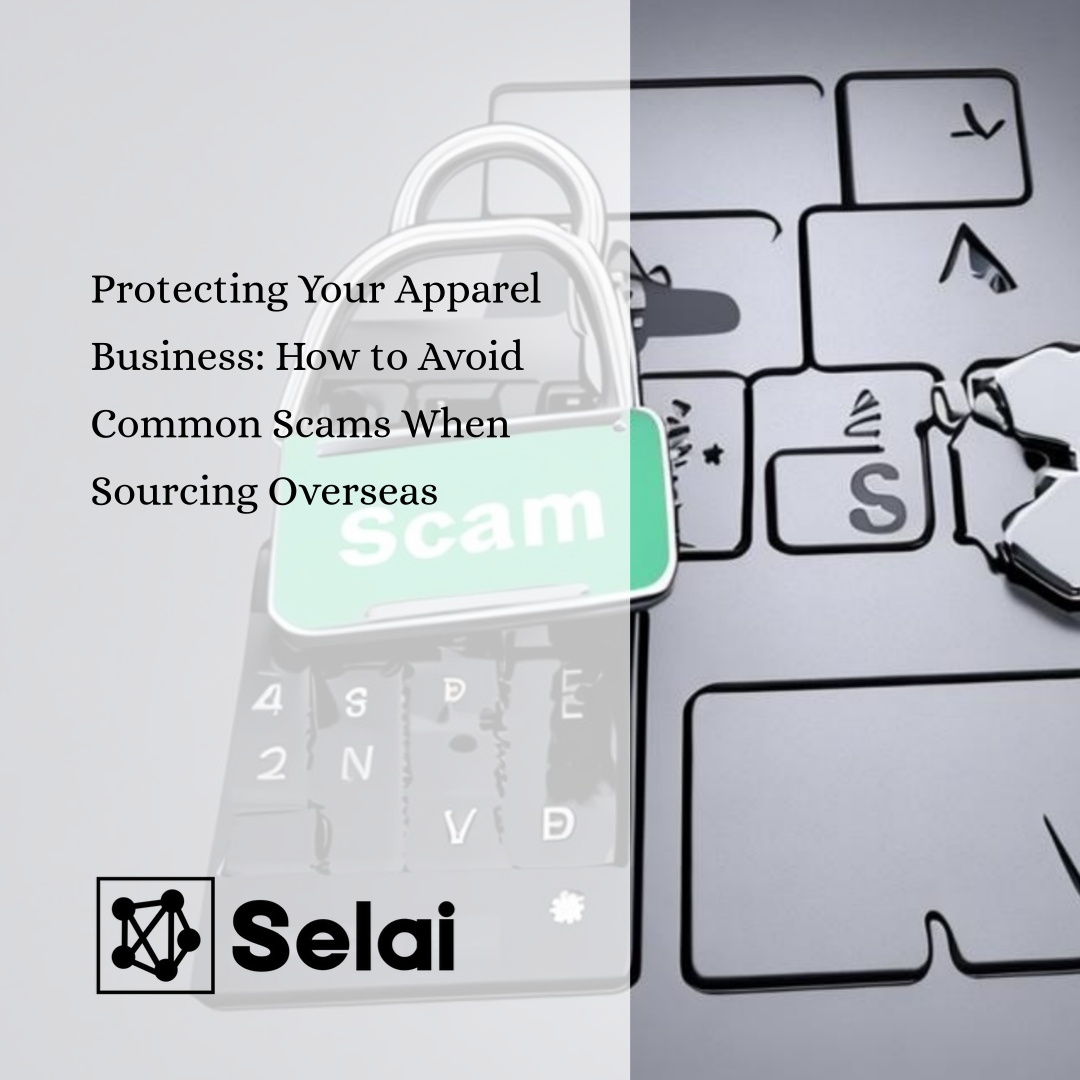
Sourcing apparel from overseas can be a cost-effective way to stock your inventory or start a clothing business, but it also comes with risks, including the potential for scams. To protect yourself, here are some common scams to be aware of and how to avoid them:
Supplier Fraud:
Fake Suppliers: Be cautious of suppliers that offer extremely low prices or have unprofessional attitudes. Verify the legitimacy of the supplier by conducting background checks, asking for references, and looking for reviews or ratings from other buyers.
Advance Payment Scams: Avoid suppliers who demand large upfront payments, especially if they insist on using methods like Western Union or cryptocurrency. Use secure payment methods with buyer protection.
Counterfeit Products:
Product Authenticity: Request samples and thoroughly inspect the quality of the products before placing large orders. Ensure that the supplier can provide proof of authenticity for branded or designer items they claim they have worked on before. A lot of manufacturers overseas make replica products and sell them in the local markets or aftermarkets.
Check for Certification: Ask for certifications and documentation, such as product testing reports and compliance with international standards, to verify the authenticity and quality of the products.
Quality Control Issues:
Inspection Services: Consider hiring a third-party inspection service to assess the quality of the products before they are shipped. This can help you identify and address quality control issues early on.
Shipping and Delivery Scams:
Hidden Fees: Beware of unexpected shipping costs, customs fees, or taxes. Clarify all shipping terms and costs with the supplier in advance.
Delivery Delays: Some suppliers may promise fast delivery times but fail to meet deadlines. Set clear expectations for delivery times and penalties for delays in your contract.
Misrepresentation of Products:
Accurate Product Descriptions: Ensure that the supplier accurately describes the products in terms of size, materials, and design. This can help you avoid receiving goods that are significantly different from what you expected.
Communication Scams:
Language Barriers: Miscommunication can lead to misunderstandings and mistakes. Use clear and concise communication, and consider hiring a translator if necessary.
Intellectual Property Issues:
Trademark and Copyright Infringement: Make sure the supplier does not sell your products in the local market or aftermarket. There are bad reputations of factories selling excess stocks or rejected stocks on the local market.
Unverified Payment Methods:
Escrow Services: Whenever possible, use escrow services that hold payment until you receive and approve the goods. This provides an added layer of security. LC is also a safe mode of payment widely used in the export-import industry. “Contractual Payment Schedules” can be very risky for both the manufacturers and the buyers.
Lack of Contract:
Written Agreements: Always have a written contract that clearly outlines all terms and conditions, including payment terms, delivery schedules, quality standards, and dispute resolution processes.
Due Diligence:
Research and References: Conduct thorough due diligence on potential suppliers by researching their reputations, asking for references, and contacting other businesses that have worked with them.
Remember that scams can happen even with seemingly reputable suppliers, so it’s essential to remain vigilant and take precautions when sourcing apparel from overseas. A trusted legal advisor or sourcing expert can also provide valuable guidance in navigating international business transactions, this is where Selai can make it easy for you by doing all the groundwork beforehand for you.
